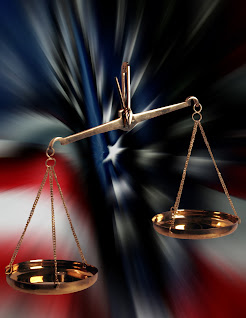Res Judicata May Be Limited In Bankruptcy Court
Can federal bankruptcy courts limit the application of res judicata in relation to both a plaintiff’s nondichargeability claim under 11 U.S.C. Section 523(a)(2)(A) and an associated state court action that has been decided? Here’s my point of view (NOTE: please read our DISCLAIMER before proceeding).
DECEIT, FRAUD AND MALICIOUS CONVERSION
The U.S. Supreme Court may avoid applying res judicata to bankruptcy courts if exclusion permits them to make an accurate determination whether a debtor in fact committed deceit, fraud, and malicious conversion. See Brown v. Felsen, 442 U.S. 127, 138, 99 S.Ct. 2205, 60 L.Ed.2d 767 (1979).
Such questions are allowed to be brought up for the first time in bankruptcy court even though a related state court action has been settled. See id. Such issues are the type of question Congress intended that the bankruptcy court would resolve. Id. at 138. That court can weigh all the evidence, and it can also take into account whether or not petitioner’s failure to press these allegations at an earlier time betrays a weakness in his case on the merits. Id.
ARCHER v. WARNER
Later, in Archer v. Warner, the U.S. Supreme Court reasoned that the Bankruptcy Code’s nondischargeability provision had originally covered “only ‘judgments’ sounding in fraud.” Archer v. Warner, 538 U.S. 314, 321, 123 S.Ct. 1462, 155 L.Ed.2d 454, 71 USLW 4249 (2003) (internal citations omitted). Congress eventually changed the language so that it covered all such “liabilities.” Id. (internal citations and quotation marks omitted). This change indicated that Congress intended the fullest possible inquiry to ensure that all debts arising out of fraud are excepted from discharge, no matter what their form. Id.
Importantly, Congress also intended to allow the relevant determination (whether a debt arises out of fraud) to take place in bankruptcy court, not to force it to occur earlier in state court at a time when nondischargeability concerns are not directly in issue and neither party has a full incentive to litigate them. Id. (citing Brown v. Felsen, 442 U.S. 127 (1979)).
This principle is particularly applicable if the issue of fraud was not actually litigated and determined by the jury in state court. In re: Diamond, 285 F.3d 822, 828 (9th Cir. 2002) (state court judgment had preclusive effect in bankruptcy court only because it was “actually and necessarily” litigated and determined by the state court jury).
LEARN MORE
If you would like to learn more, then consider contacting an experienced Washington State Attorney as soon as possible to discuss your case. Please note: the information contained in this article is not offered as legal advice and will not form an attorney-client relationship with either this author or Williams Law Group, PS; please see ourDISCLAIMER.
–gw









